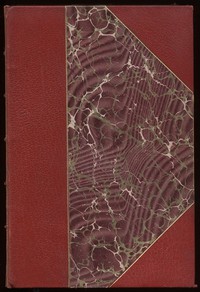Guy Mannering; or, The Astrologer — Complete by Walter Scott (good books to read in english .TXT) 📗

- Author: Walter Scott
Book online «Guy Mannering; or, The Astrologer — Complete by Walter Scott (good books to read in english .TXT) 📗». Author Walter Scott
Mac-Morlan was in the town, and came instantly to examine the corpse. ‘What brought Glossin here?’ he said to Hatteraick.
‘The devil!’ answered the ruffian.
‘And what did you do to him?’
‘Sent him to hell before me!’ replied the miscreant.
‘Wretch,’ said Mac-Morlan, ‘you have crowned a life spent without a single virtue with the murder of your own miserable accomplice!’
‘Virtue?’ exclaimed the prisoner. ‘Donner! I was always faithful to my shipowners--always accounted for cargo to the last stiver. Hark ye! let me have pen and ink and I’ll write an account of the whole to our house, and leave me alone a couple of hours, will ye; and let them take away that piece of carrion, donnerwetter!’
Mac-Morlan deemed it the best way to humour the savage; he was furnished with writing materials and left alone. When they again opened the door it was found that this determined villain had anticipated justice. He had adjusted a cord taken from the truckle-bed, and attached it to a bone, the relic of his yesterday’s dinner, which he had contrived to drive into a crevice between two stones in the wall at a height as great as he could reach, standing upon the bar. Having fastened the noose, he had the resolution to drop his body as if to fall on his knees, and to retain that posture until resolution was no longer necessary. The letter he had written to his owners, though chiefly upon the business of their trade, contained many allusions to the younker of Ellangowan, as he called him, and afforded absolute confirmation of all Meg Merrilies and her nephew had told.
To dismiss the catastrophe of these two wretched men, I shall only add, that Mac-Guffog was turned out of office, notwithstanding his declaration (which he offered to attest by oath), that he had locked Glossin safely in his own room upon the night preceding his being found dead in Dirk Hatteraick’s cell. His story, however, found faith with the worthy Mr. Skriegh and other lovers of the marvellous, who still hold that the Enemy of Mankind brought these two wretches together upon that night by supernatural interference, that they might fill up the cup of their guilt and receive its meed by murder and suicide.
As Glossin died without heirs, and without payment of the price, the estate of Ellangowan was again thrown upon the hands of Mr. Godfrey Bertram’s creditors, the right of most of whom was, however, defeasible in case Henry Bertram should establish his character of heir of entail. This young gentleman put his affairs into the hands of Mr. Pleydell and Mr. Mac-Morlan, with one single proviso, that, though he himself should be obliged again to go to India, every debt justly and honourably due by his father should be made good to the claimant. Mannering, who heard this declaration, grasped him kindly by the hand, and from that moment might be dated a thorough understanding between them.
The hoards of Miss Margaret Bertram, and the liberal assistance of the Colonel, easily enabled the heir to make provision for payment of the just creditors of his father, while the ingenuity and research of his law friends detected, especially in the accounts of Glossin, so many overcharges as greatly diminished the total amount. In these circumstances the creditors did not hesitate to recognise Bertram’s right, and to surrender to him the house and property of his ancestors. All the party repaired from Woodbourne to take possession, amid the shouts of the tenantry and the neighbourhood; and so eager was Colonel Mannering to superintend certain improvements which he had recommended to Bertram, that he removed with his family from Woodbourne to Ellangowan, although at present containing much less and much inferior accommodation.
The poor Dominie’s brain was almost turned with joy on returning to his old habitation. He posted upstairs, taking three steps at once, to a little shabby attic, his cell and dormitory in former days, and which the possession of his much superior apartment at Woodbourne had never banished from his memory. Here one sad thought suddenly struck the honest man--the books! no three rooms in Ellangowan were capable to contain them. While this qualifying reflection was passing through his mind, he was suddenly summoned by Mannering to assist in calculating some proportions relating to a large and splendid house which was to be built on the site of the New Place of Ellangowan, in a style corresponding to the magnificence of the ruins in its vicinity. Among the various rooms in the plan, the Dominie observed that one of the largest was entitled THE LIBRARY; and close beside was a snug, well-proportioned chamber, entitled Mr. SAMPSON’S APARTMENT. ‘Prodigious, prodigious, pro-di-gi-ous!’ shouted the enraptured Dominie.
Mr. Pleydell had left the party for some time; but he returned, according to promise, during the Christmas recess of the courts. He drove up to Ellangowan when all the family were abroad but the Colonel, who was busy with plans of buildings and pleasure-grounds, in which he was well skilled, and took great delight.
‘Ah ha!’ said the Counsellor, ‘so here you are! Where are the ladies? where is the fair Julia?’
‘Walking out with young Hazlewood, Bertram, and Captain Delaserre, a friend of his, who is with us just now. They are gone to plan out a cottage at Derncleugh. Well, have you carried through your law business?’
‘With a wet finger,’ answered the lawyer; ‘got our youngster’s special service retoured into Chancery. We had him served heir before the macers.’
‘Macers? who are they?’
‘Why, it is a kind of judicial Saturnalia. You must know, that one of the requisites to be a macer, or officer in attendance upon our supreme court, is, that they shall be men of no knowledge.’
‘Very well!’
‘Now, our Scottish legislature, for the joke’s sake I suppose, have constituted those men of no knowledge into a peculiar court for trying questions of relationship and descent, such as this business of Bertram, which often involve the most nice and complicated questions of evidence.’
‘The devil they have! I should think that rather inconvenient,’ said Mannering.
‘O, we have a practical remedy for the theoretical absurdity. One or two of the judges act upon such occasions as prompters and assessors to their own doorkeepers. But you know what Cujacius says, “Multa sunt in moribus dissentanea, multa sine ratione.” [Footnote: The singular inconsistency hinted at is now, in a great degree, removed.] However, this Saturnalian court has done our business; and a glorious batch of claret we had afterwards at Walker’s. Mac-Morlan will stare when he sees the bill.’
‘Never





Comments (0)